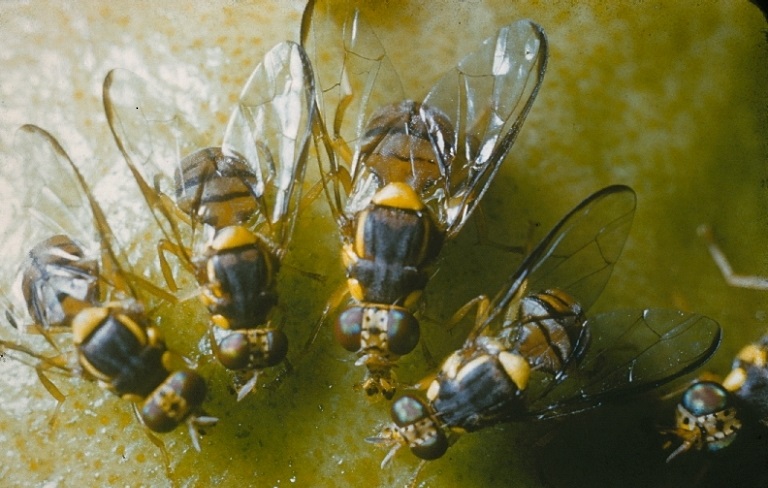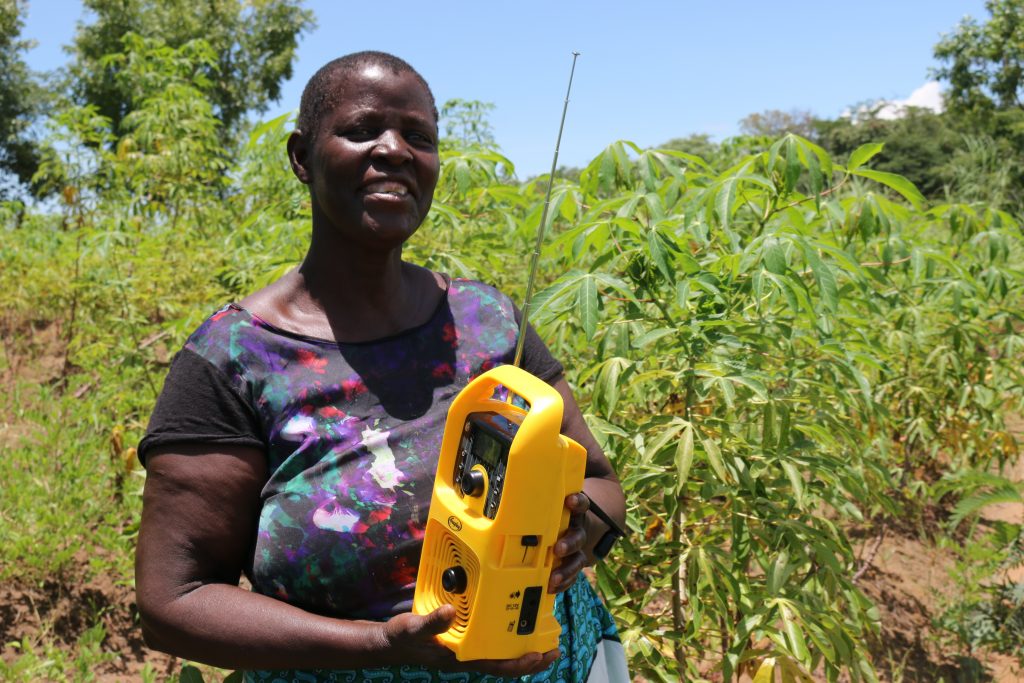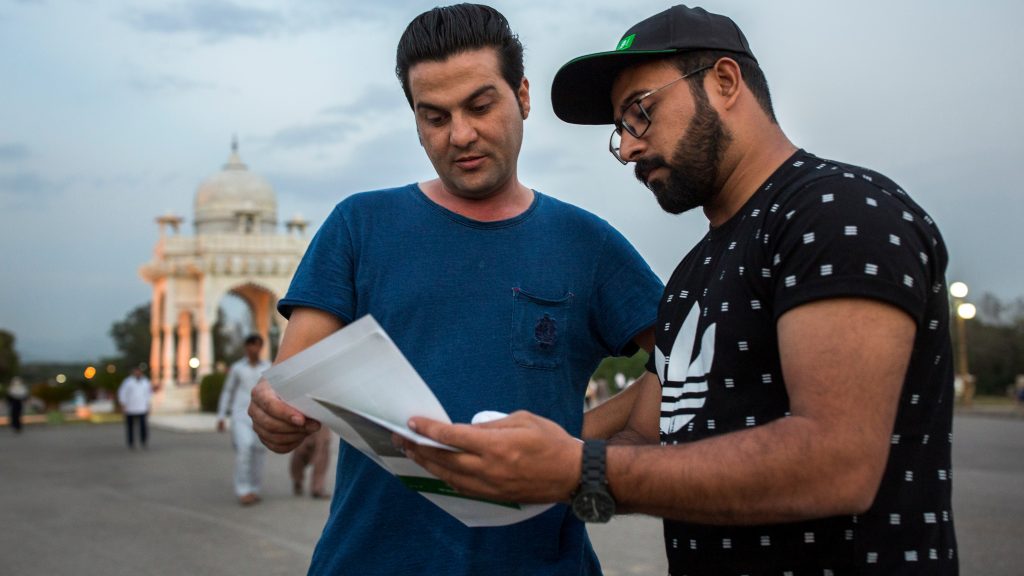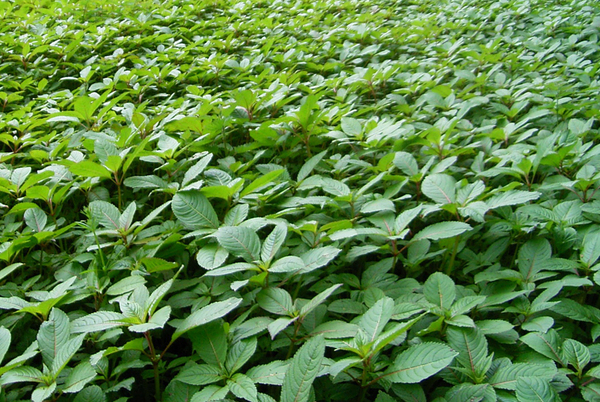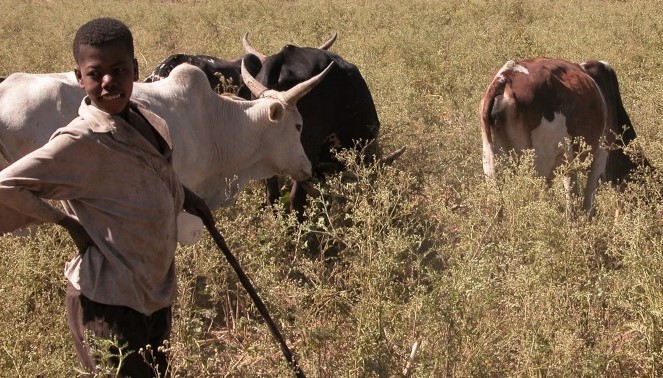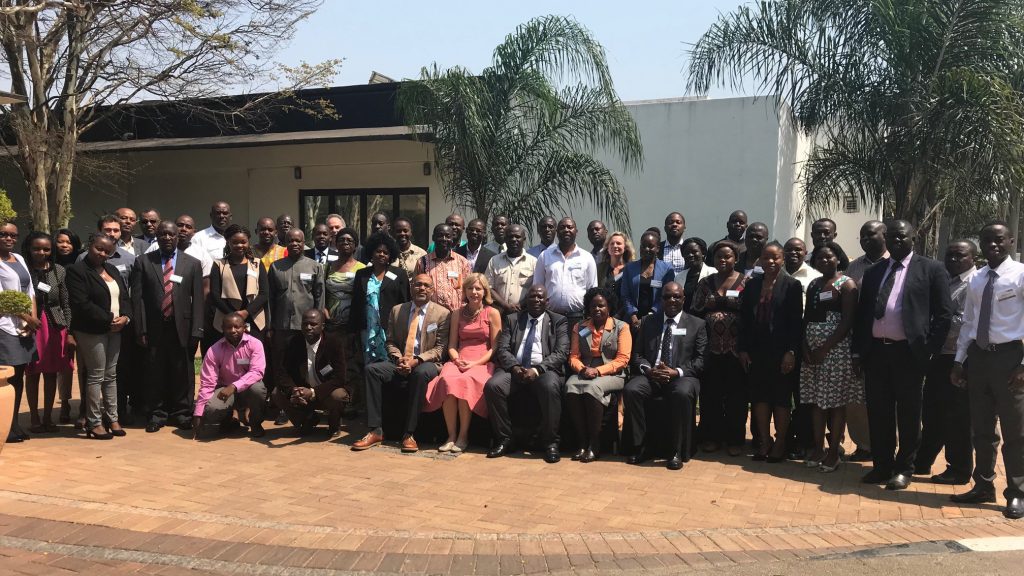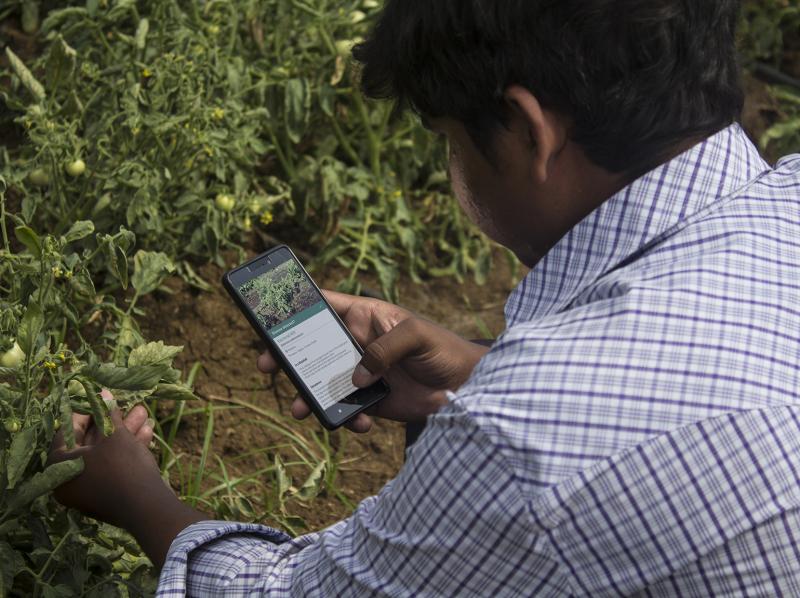Major invasive pest found for the first time on agricultural land in Europe
Eight oriental fruit flies (Bactrocera dorsalis), considered the world’s worst invasive fruit fly, have been found at two monitoring stations in Italy. Annually, there are several reports of this species being found in infested fruit in France, Switzerland and the UK, and one individual was found in a trap in an Austrian fruit market in…
CABI updates International Soft Fruit Conference on fight against devastating invasive fruit fly
CABI scientist Dr Lukas Seehausen has updated delegates at the International Soft Fruit Conference in s-Hertogenbosch, in the Netherlands, on the very latest research in the fight against the devasting fruit fly Drosophila suzukii. Dr Seehausen, a research scientist in risk analysis and invasion ecology based at CABI’s Swiss centre in Delémont, said a biological control agent – the parasitoid Ganaspis…
Fall armyworm radio campaign for next growing season launches in Zambia
CABI in partnership with Ministry of Agriculture in Zambia through the National Agricultural Information Services (NAIS) has launched a national radio campaign focusing on the identification, prevention and management of fall armyworm. The campaign aims to help smallholder farmers in Zambia minimise fall armyworm losses and learn how to safely use chemicals.
Invasives Most Read 2018
2018 has been a bumper year for the CABI Invasives blog, with 4 times more posts than 2017 and over twice the number of views (over 20,000!). With so many articles published this year, we have compiled a list of the top 20 most read to round off 2018.
Addressing the root of the problem — why plant health and evidenced-based interventions matter to global development
by Duncan Barker (Research and Evidence Division, DFID) and Dr Roger Day (CABI). Reblogged from the DFID Research blog. Global agriculture faces a myriad of threats, of which one of the greatest is invasive species. With no native organisms to control them, invasive species such as plant pests and diseases spread out of control, damaging crops and…
Not Just Maize: Africa’s Fall Armyworm Crisis Threatens Sorghum, Other Crops, Too
By Sara Hendery. Reblogged from Entomology Today. Scientists from the International Crops Research Institute for the Semi-Arid Tropics (ICRISAT) in Niger say that 99 percent of the media and research coverage on the fall armyworm focuses on the invasive pest’s deadly threat to maize.
In the fight against Parthenium, make sure to “know your enemy”
Latest book in the CABI Invasive Series: Parthenium Weed Parthenium weed (Parthenium hysterophorus) is considered one of the worst weeds in the world. It has invaded and is widespread in about 48 countries in Africa, Asia and the South Pacific, and has the potential to spread to new countries in Africa, Asia and parts of…
Fall armyworm in Africa: communicating out of a crisis
Take a quick look at the map of the fall armyworm invasion. It gives you a good feel for the number of smallholder farmers in sub-Saharan Africa directly affected by a small caterpillar eating their staple crop – maize – at a rapid rate. As a communication professional working in agriculture, it has been the…
Indian farmers using smartphones to fight fast-moving crop killer
By Eric Marx. Reblogged from Ethical Corporation. Plantix is a diagnostic app that uses image recognition software and AI. It is being used to halt the advance of the fall armyworm pest. An app that uses artificial intelligence to identify plant disease is being deployed in India as an early-warning system to stop the advance…
CABI study identifies safer options for fall armyworm control in Africa
CABI’s experts in the biological control of agricultural pests and diseases have conducted the first major study of potential biological controls that could be used in the fight against the devastating fall armyworm which recently arrived in Africa.

